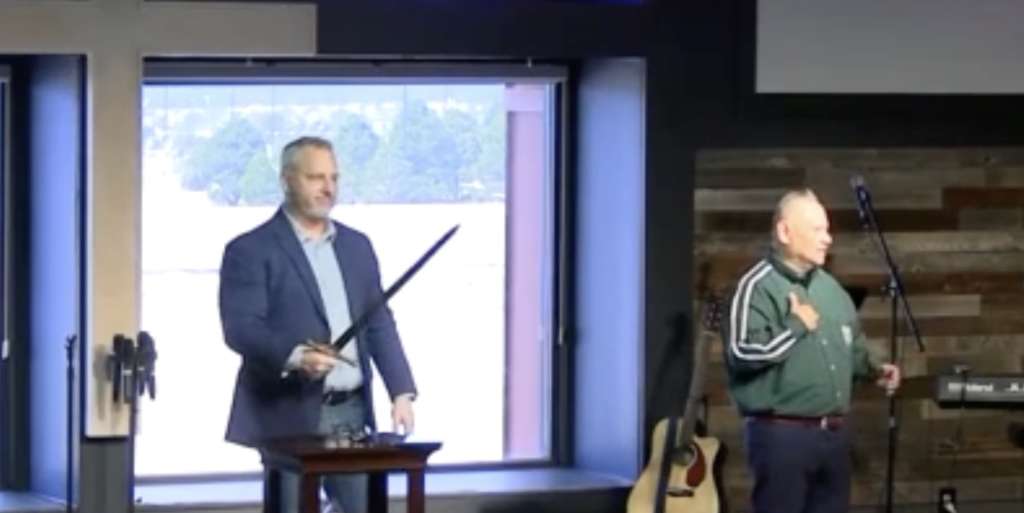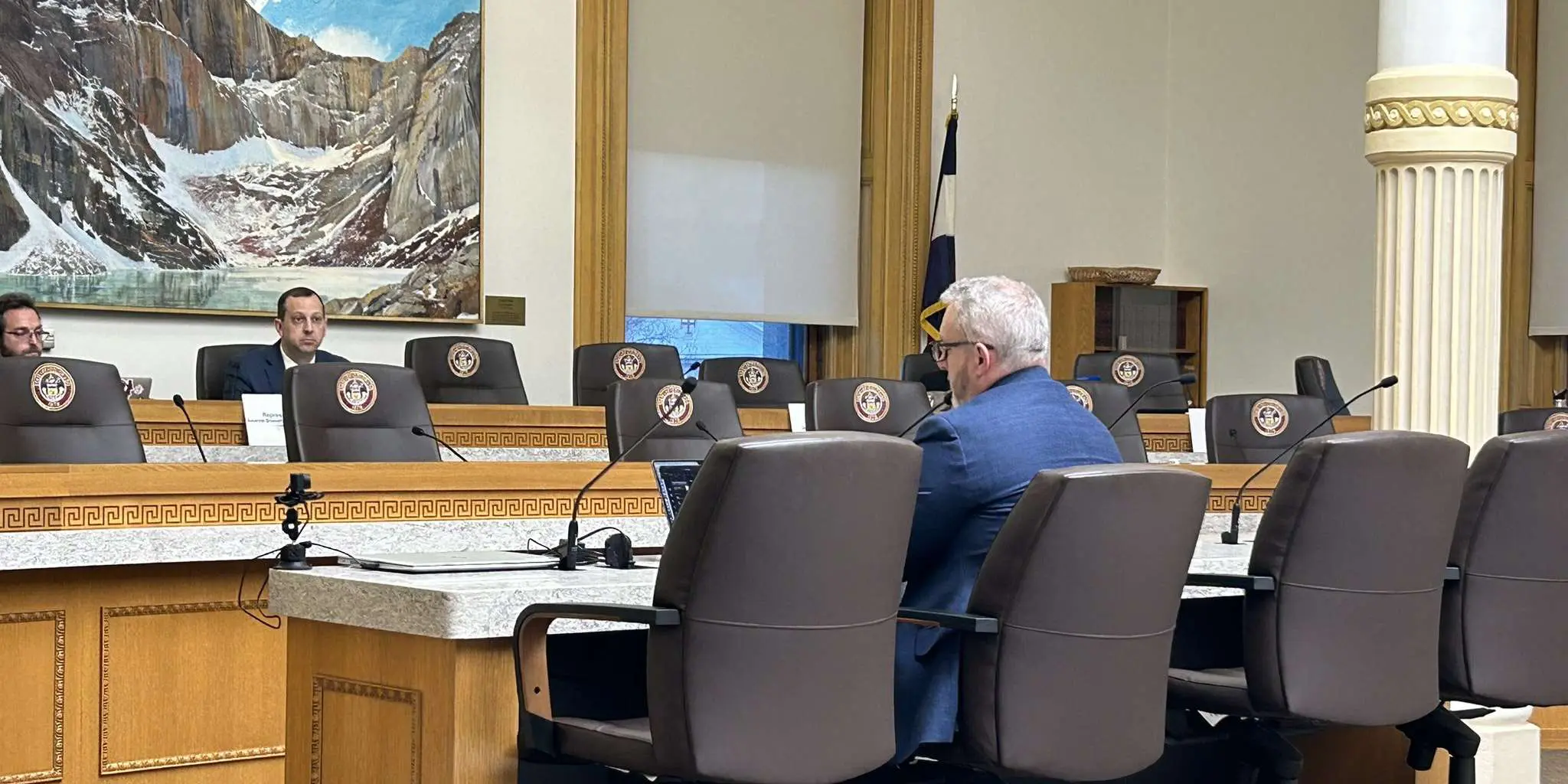This week, Colorado’s House Judiciary Committee voted to indefinitely postpone Rep. Scott Bottoms’ (R-Colorado Springs) bill to make bringing a minor from another state to Colorado for abortion or gender-affirming care a class 2 felony. Bottoms’ bill had no cosponsors in either the House or the Senate.
“This bill is about human trafficking,” said Bottoms, who previously introduced unsuccessful bills aimed at criminalizing abortion in Colorado in both 2023 and 2024. “This bill deals with taking children across state lines to have either abortion or transgender care.”
The bill would add a provision in Colorado statute that says a person, corporation, or government agency commits felony human trafficking if they bring a minor to Colorado to receive an abortion or gender-affirming care, both of which are legal in Colorado.
“The bill targets vulnerable young people seeking gender-affirming care and abortion care with the full knowledge, consent, and, indeed, accompaniment by their parents by equating their health care with human trafficking, which is obviously a false and incredibly insulting premise that seeks to criminalize health care that is both legal and life-saving,” said Jack Teter of Planned Parenthood of the Rocky Mountains during his testimony in opposition to the bill. “Our first priority is always the care and safety of our patients. Planned Parenthood Health Center staff actually work with the anti-trafficking task forces. We train our providers and our intake teams to identify unsafe situations. We ask specific, trauma-informed questions during our intake processes.”
Victoria Acuña, a policy advocate for reproductive health care and former Texas resident, noted the impact that laws like Bottoms’ proposed bill have had.
“I’ve seen how the relentless legal action and total ban have negatively impacted maternal and infant mortality, pregnancy outcomes, and the overall sexual, physical, and mental health of young Texans,” she said. “It is very disturbing that there are policymakers committed to worsening public health in Colorado under the guise of protecting children, but really in this process they are dangerously redefining human trafficking in order to strip young people of their rights.”


While introducing the bill, Bottoms made outrageous claims about gender-affirming care in Colorado, which was recently halted for individuals under the age of 19 by Denver Health and UCHealth.
“We’re also seeing this, a very strong, growing group — according to sheriff department and police department — that these children that are being trafficked across state lines are actually now being trafficked specifically for sex-change surgeries,” Bottoms claimed without evidence. “This is so they can be whatever the trafficker wants them to be. This is the most disgusting and dark things that we are doing to our children.”
These claims were directly contradicted by witness testimony from individuals and organizations working with transgender populations. “I want to note here that according to our research, gender-affirming care is the hardest form of reproductive health care to access for young people,” said Natasha Berwick, the policy and research director for New Era Colorado. “Fifty-seven percent of our respondents who identify as trans or non-binary said that [gender-affirming health care] was really hard for them to access that care.”
Jax Gonzalez, the political director for One Colorado, noted that surgeries for minors are uncommon. “Despite widespread misinformation, only a small percentage of people access gender-affirming care, particularly minors” they said. “According to a recent study by Harvard Medical, less than one in one thousand youth in the U.S. are prescribed puberty blockers, and an even smaller fraction undergo hormone therapy before adulthood. Surgical interventions for minors are exceedingly rare, with .000021% of minors aged 15-17 years receiving gender-affirming surgery, with most gender-affirming care focusing on social support, therapy and reversible treatments.”
Witnesses in support of Bottoms’ bill included Jordan Baldwin, a reporter for conservative news program Peak News who is known for protesting drag events in Colorado Springs, and Tanya Regan, who cited the film “Sound of Freedom” and the work of anti-trans activist Erin Lee, and anti-abortion activists like Dr. Catherine Wheeler.
“This bill is a direct assault on [transgender people], your identities,” said Rep. Lorena Garcia (D-Denver). “I think we can all agree here that human trafficking is absolutely one of the most if not the most horrendous acts that can exist. It is an absolute and total violation of a person’s bodily autonomy. It strips victims of their dignity and it robs children of their innocence. Forcing a victim of sexual trafficking to see a pregnancy through is also a violation of a person’s bodily autonomy. It robs people of their dignity and of their freedom. This bill is not an anti-trafficking bill. This bill is a poorly disguised anti-choice and anti-trans bill that puts people’s lives at risk. It robs people of their fundamental freedoms, robs parents of their parental rights. It robs youth of their ability to be their authentic selves and live their authentic lives. It ignores our current anti-trafficking laws, our current parental consent laws, and our laws that prohibit forced medical treatment. It ignores our new constitutional right to abortion and our state’s protections to gender-affirming care for trans adults and kids. Clearly this bill is not needed. It is simply to push a dangerous ideology that puts those seeking and providing care at risk.”
The bill failed by a vote of 4-7, with Representatives Ryan Armagost (R-Berthoud), Matt Soper (R-Delta), Jarvis Caldwell (R-Monument), and Rebecca Keltie (R-Colorado Springs) voting in favor.




